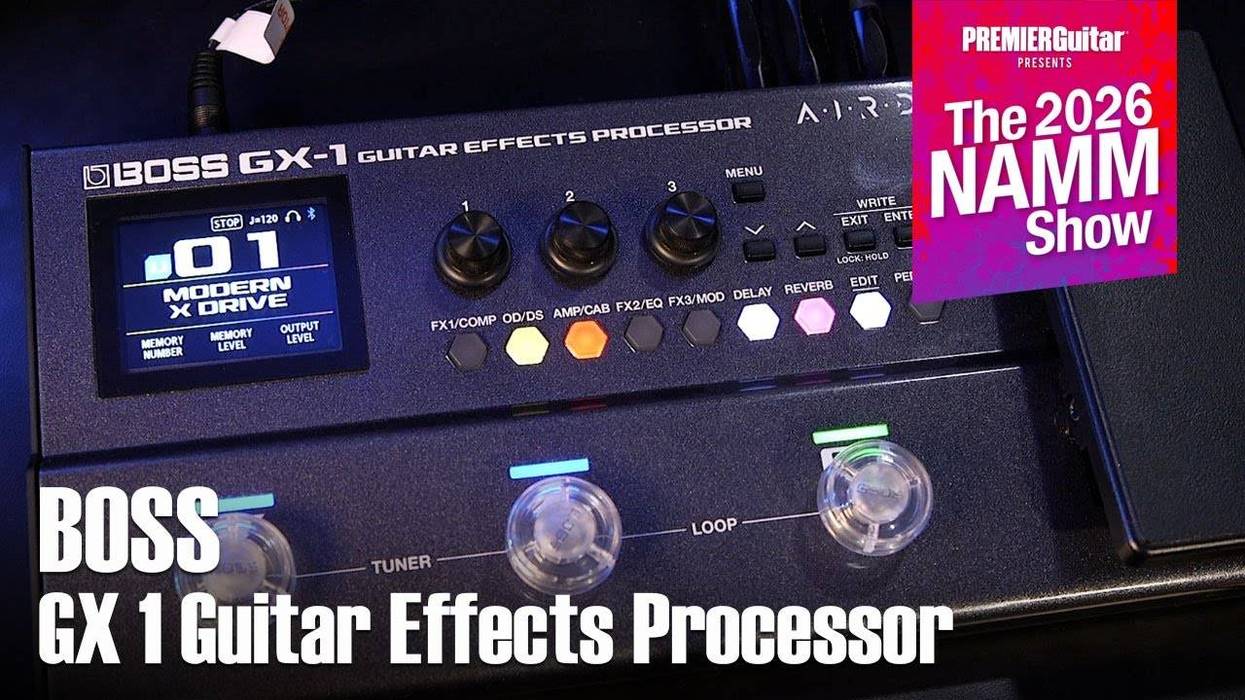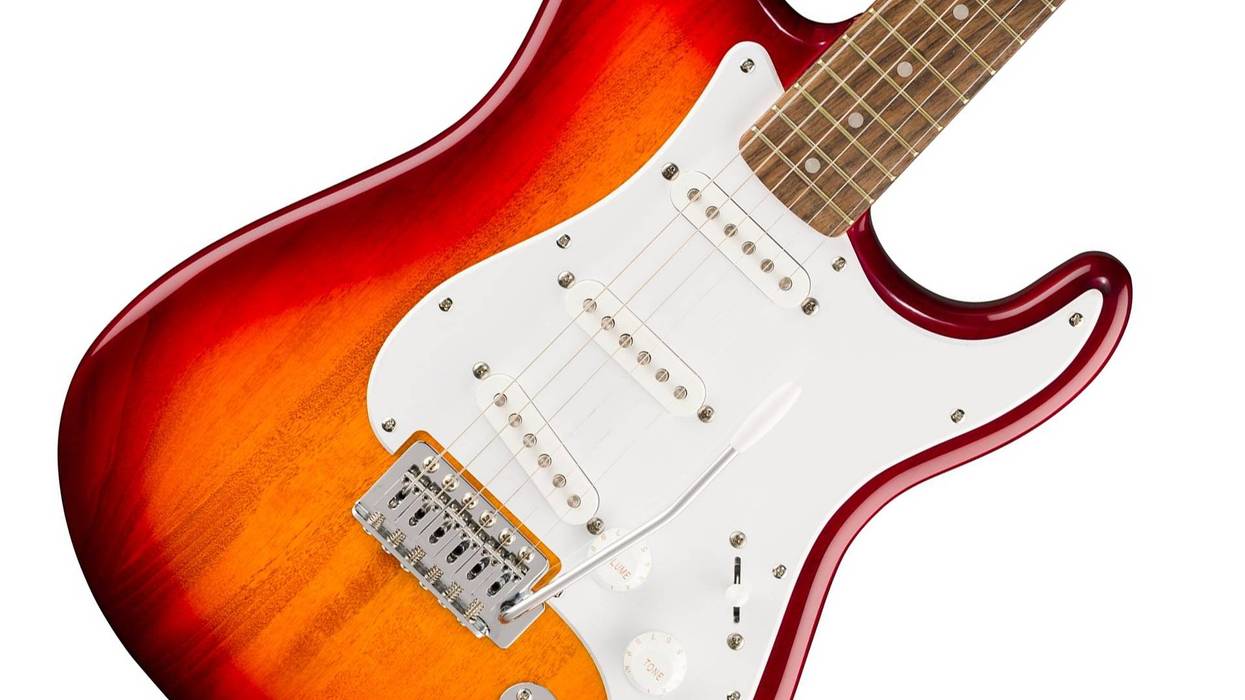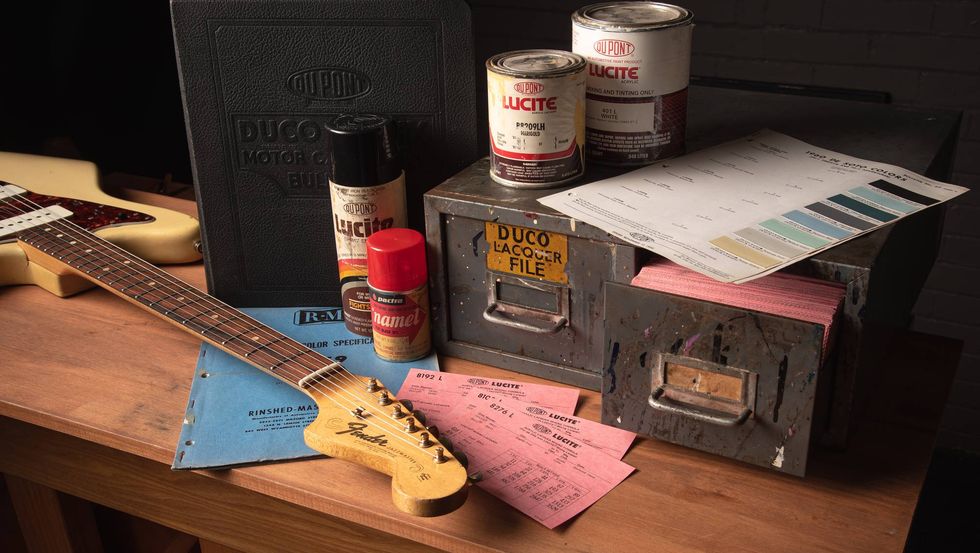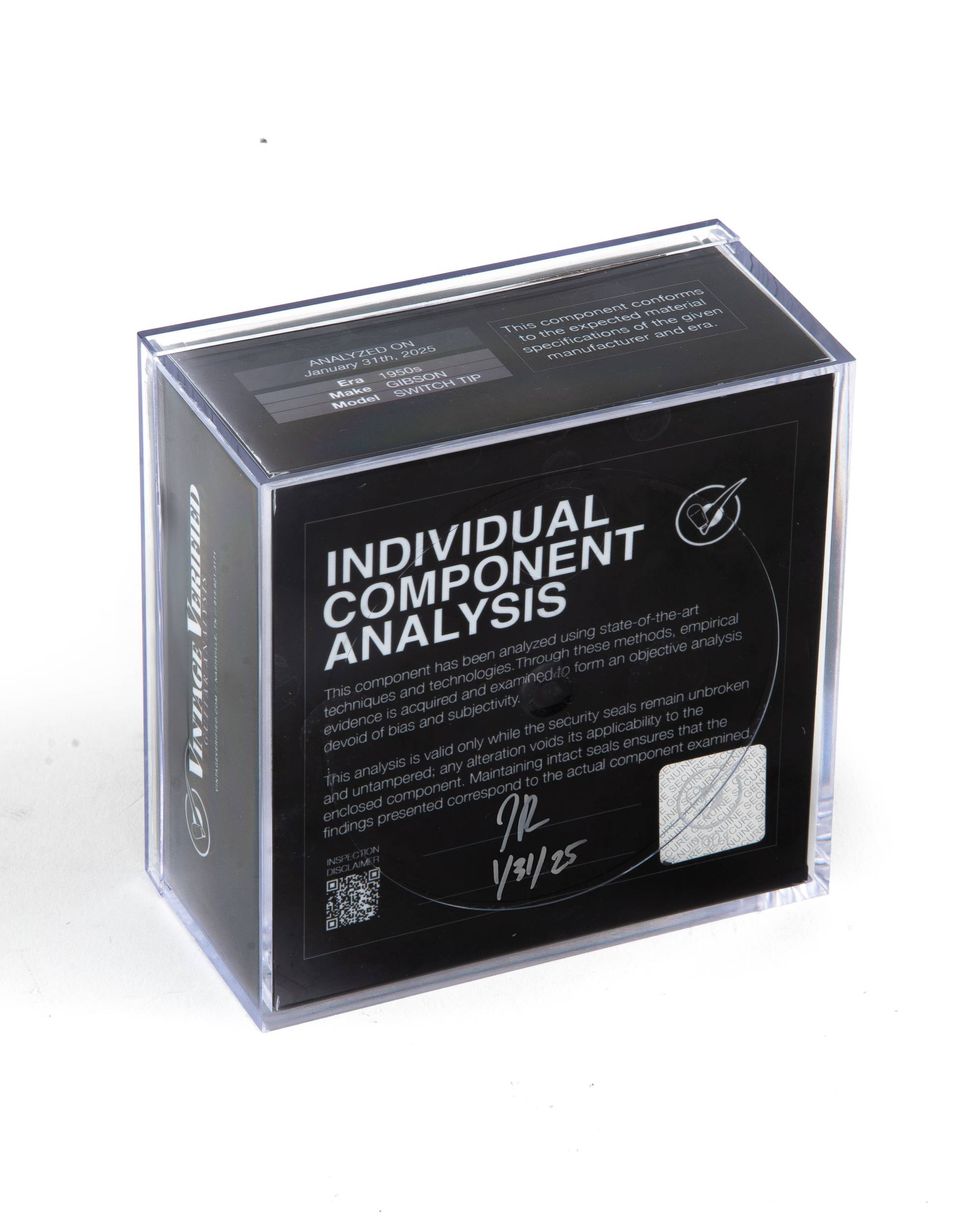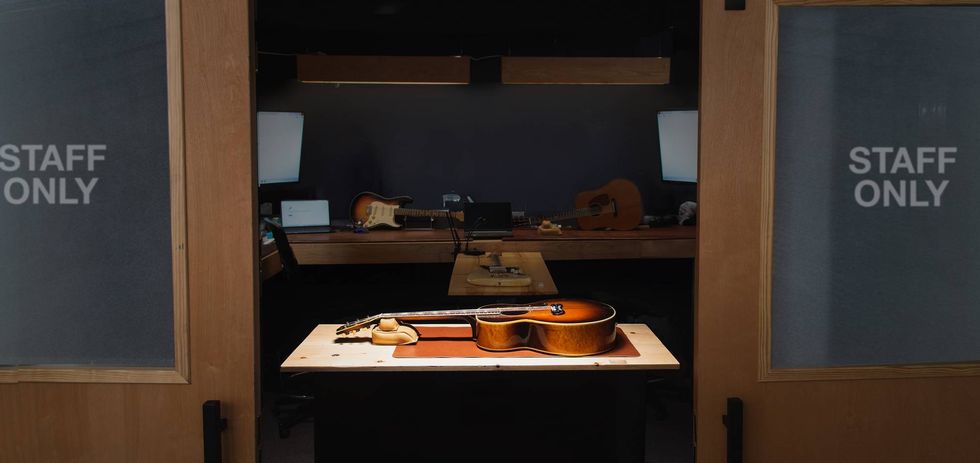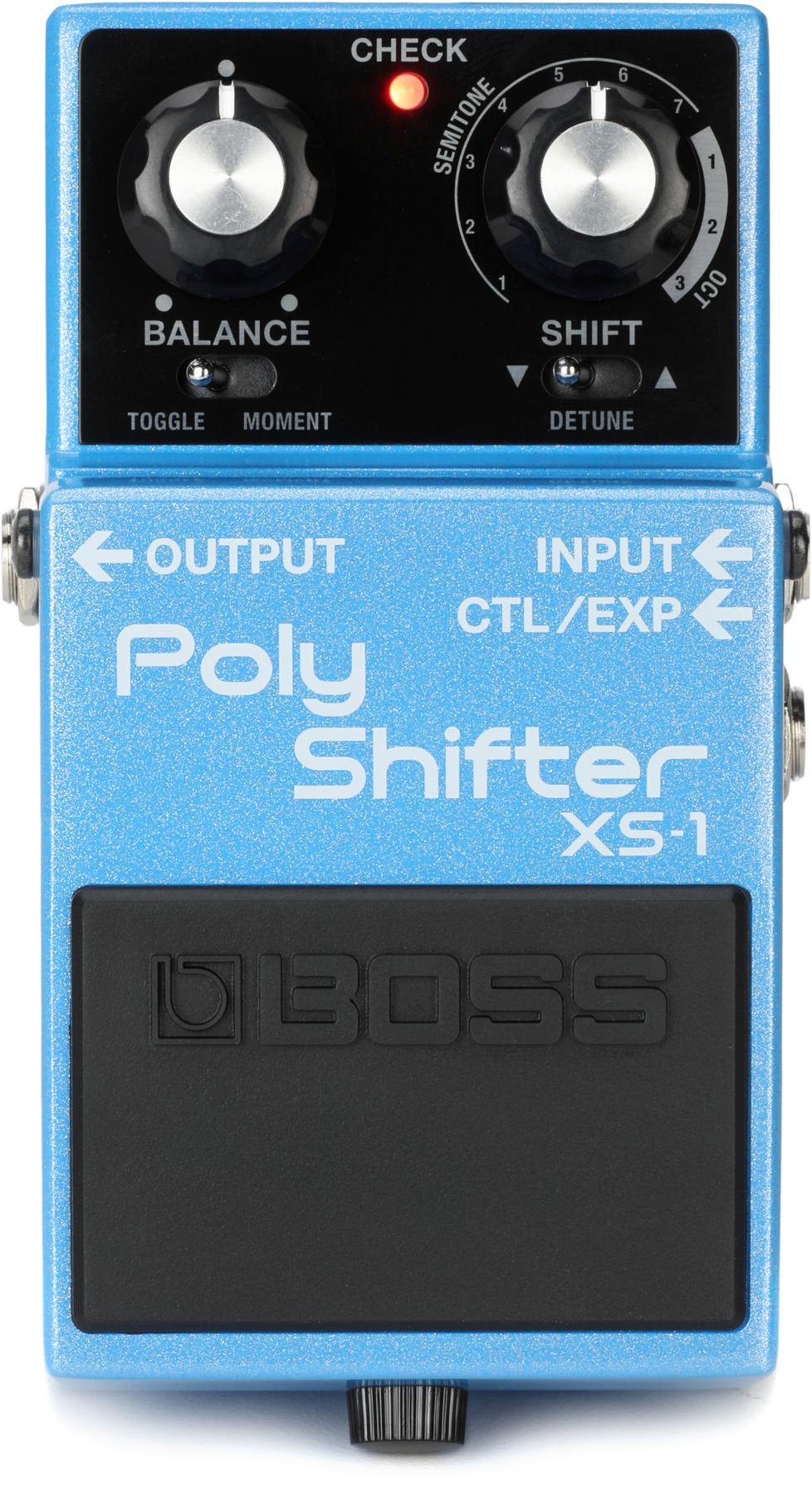If you’re on the quest for a Big Muff clone these days, Massachusetts-based Stomp Under Foot has probably crossed your path more than once. SUF is a one-man army—namely Matt Pasquerella—who has an encyclopedic knowledge of all things Muff and produces brilliant pedals that replicate Big Muffs from nearly every era, from the classic Ram’s Head found on Pink Floyd’s “The Wall” to that scathing acid-wash of The Smashing Pumpkins.
So what’s this Muff Master to do once he’s mastered the buzz game? He decided to make an overdrive. Loosely based on the original Ibanez TS-808, the Mean Green Machine is SUF’s contender in the saturated TS clone market. Nearly every boutique entrepreneur has their version of that pea green box that’s been on more records than, well, just about any other pedal you can think of. So how well does the Mean Green Machine measure up to a classic? Let’s begin by saying we were impressed.
Old Specs
The Mean Green Machine’s user interface, so to speak, is built around three tried-and-true controls: Level (volume), Gain, and Tone. While some of the later TS models and mods venture into a fourth parameter (oftentimes Mids), the Mean Green’s simple dial set remains true to the original.
Coated in a British Racing Green sparkle and sporting alpine white knobs, the race-ready exterior is elegant and clean—just like the interior. Having previously opened up two SUF creations (Civil War and Red Menace), I can attest to the fine craftsmanship that Matt pours into his hand-wired pedals. They’re sharp and flawless, with plenty of breathing room. The Switchcraft jacks are accurately mounted to avoid contact with wires, and if you choose to go with a battery it will rest comfortably between the housing and the true-bypass switch without rattling around.
At the Track
While some later, vintage-era TS-808s vary in terms of parts consistency, Matt stays true to the original and uses a RC4558P chip, which provides a little more gain. The Tone control is remarkably responsive. I’ve played several reissues (and some clones) where this feature is nearly useless and just takes up extra space. Here we have a welcome and effective EQ sweep that works for about any guitar and amplifier combination.
I tested the Mean Green Machine on a Fender Reissue ’65 Twin Reverb, a Fender ’68 Bassman, and a CEC Toll-Free Express—running into a 4x12 cab. Guitars included a Gibson Les Paul, and a Fender Stratocaster and Telecaster.
Starting with the Fender Bassman and Telecaster, I ran the Mean Green Machine with all controls around noon. Engaging the effect yields an output of similar volume but with a cool peppering of saturated twang. There is a distinct focus on midrange, but the Mean Green massages your tone towards a very natural, amp-like break-up while preserving the highs and lows. And it can be a very transparent effect.
Switching over to the Les Paul and boosting the pedal’s Gain and Level to 2 o’clock makes the Mean Green a versatile blues-rock rig. Lowering the guitar’s volume opened up crawling rhythm tones and filthy ZZ Top lead sounds. A little boost in Tone and the ‘bucker equipped guitar can easily sail over a driving, bass-heavy band.
The 10-watt CEC Toll-Free Express and the Mean Green got along exceptionally well, and the pedal is capable of adding a cool heft to any low-wattage amp. Small amp scenarios call for a different overdrive configuration—essentially a boost in the Green’s Level and a decrease in the amp’s gain. But the setup worked as well for Texas-style overdrive as accenting the chime of a Stratocaster. Here again the guitar’s volume is key in coaxing a buttery rhythm from shuffling chords and the Mean Green responds beautifully.
The Verdict
Searching for the right TS clone can be a complete nightmare. A lot of manufacturers make promises that are tough to keep. But Stomp Under Foot’s high-quality Mean Green Machine is a tone conservationist that can add a heap of bad bite that lends versatility to any guitar/amp combination you throw its way. The $150 price tag is entirely reasonable considering that many TS-inspired overdrives cost more, probably won’t perform nearly as well, and don’t have SUF’s hand-made touch. If TS-808 tone you’re looking for, get in line—The Mean Green Machine is totally worth the wait.
Buy if...
that overdrive bite hasn’t been scratched.Skip if...
you can’t handle the wait for backorder. Hey, it’s a one-man show!Rating...










